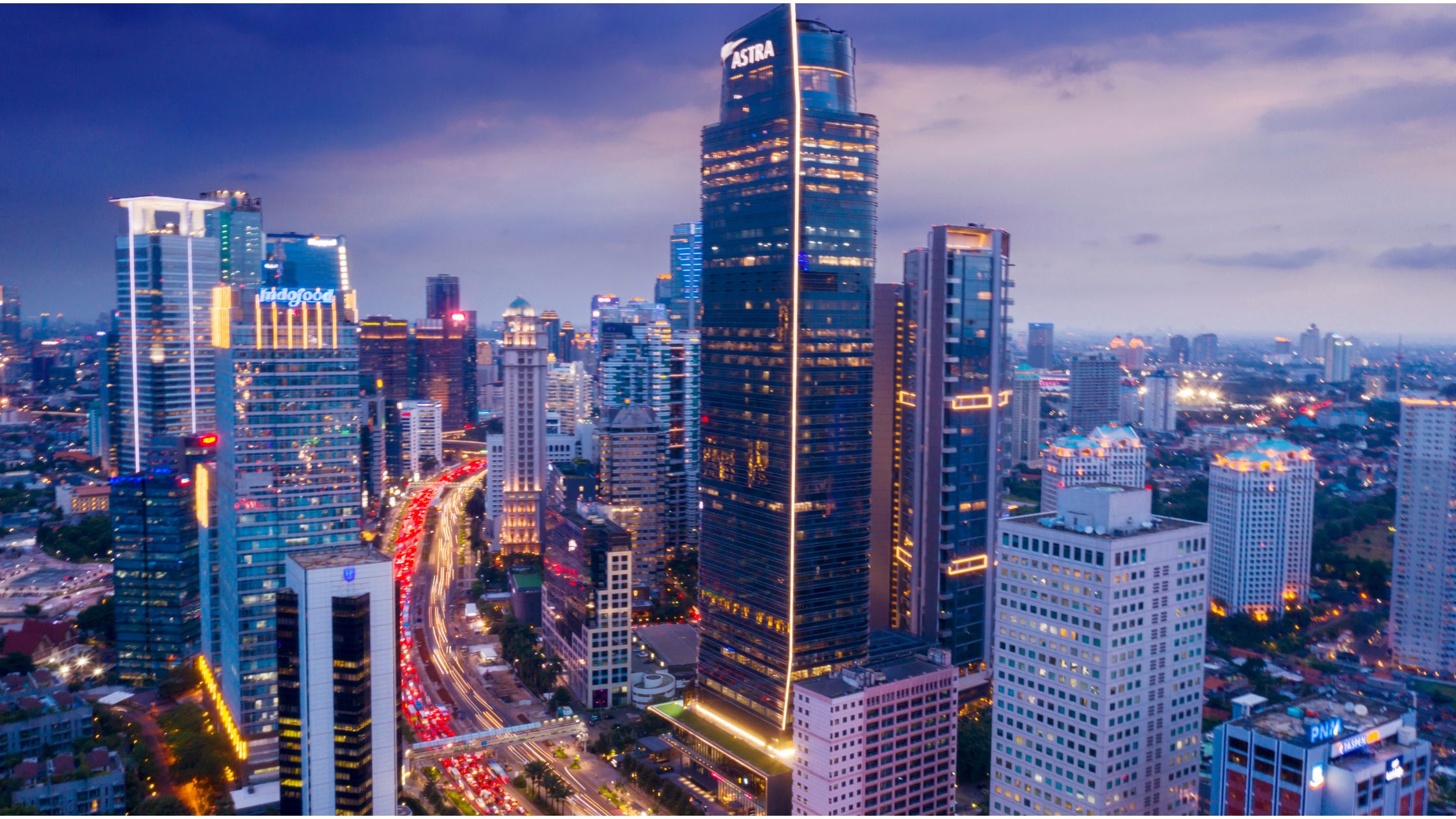
Indonesia’s economy is on a steady ascent, fuelled by an uptick in public expenditure, heightened business investment and consistent consumer demand. The country is also undergoing a digital transformation, which is reshaping its financial services, e-commerce and payment systems.
As enterprises explore these evolving opportunities, understanding how to verify a company in Indonesia is an essential first step for establishing secure and sustainable commercial relationships.
With its archipelago of over 17,000 islands and a population exceeding 270 million, Indonesia is the fourth most populous country in the world. This vast demographic foundation presents significant potential in a variety of sectors, from retail and telecommunications to financial services.
The Indonesian business registry is expanding, and with Micro, Small and Medium Enterprises (MSMEs) forming the backbone of the economy, there are abundant opportunities for multinational or regional corporations to either engage in business partnerships with local MSMEs or to offer services that assist these enterprises in strengthening their market presence.
Opportunities in Indonesia’s digital economy
Indonesia’s citizens are tech-savvy and the nation ranks as the fourth largest in the world in terms of internet users, with more than 185 million people connected online. Given the substantial size and digital adeptness of this market, it’s no wonder that Indonesia’s e-commerce sector has emerged as the largest in Southeast Asia, accounting for nearly 50% of the region’s total market.
Given all these factors, Indonesia’s digital economy is on track for significant expansion, expected to surpass $130 billion by 2025. This opens up considerable growth avenues for e-commerce, fintech and digital payment service providers.
Before committing to any commercial partnerships in this market, however, organisations must identify and verify the parties they plan to engage with.
The Know Your Business (KYB) process starts with an Indonesian company registry check to assess the legitimacy of potential business partners. Additionally, Ultimate Beneficial Owner (UBO) checks are conducted to identify the actual individuals who benefit from or control a business, beyond merely the named stakeholders. Collectively, these measures ensure organisations comply with Indonesia’s Anti-Money Laundering (AML) and Counter Financing of Terrorism (CFT) regulatory mandates.
Understanding Indonesia’s AML/CFT framework
According to the Financial Action Task Force, Indonesia has “a strong legal framework to tackle money laundering and terrorist financing and is making good use of financial intelligence and domestic and international cooperation”.
Indonesia’s AML/CFT regulations are overseen by Bank Indonesia and other regulatory bodies, enforcing compliance through rigorous monitoring and reporting requirements. Companies are required to implement effective AML and CFT programmes, incorporating suitable technological tools for monitoring transactions and ensuring transparency.
This framework demands that companies maintain robust systems to detect, report and prevent any activities potentially related to money laundering or terrorism financing, aligning with both national and international standards to safeguard the financial system’s integrity.
In Indonesia, the primary industry sectors that are regulated include:
- All commercial, rural and Sharia banks.
- Insurance providers including life, general, reinsurance and Sharia companies.
- Securities companies and capital markets including securities underwriters, brokers, dealers, investment managers and mutual funds.
- Non-bank financial institutions including money remitters, finance companies, credit unions, pawnshops and leasing companies.
- Non-bank payment system service providers and money changers
In general, these organisations are mandated to:
- Identify and verify the identities of all entities and individuals that wish to use their services.
- For entities, check company registration in Indonesia.
- Confirm the identities of beneficial owners.
- Collect and verify data and documents from independent, reliable sources.
- Continuously monitor and update information and documents.
How to verify a company in Indonesia
Indonesia’s Ministry of Law and Human Rights is responsible for the Indonesian company registry and the registration of legal entities such as Limited Liability Companies, Foundations and Associations. This process includes managing the legal administrative tasks associated with establishing these entities and maintaining their records.
The Ministry utilises an online system known as AHU-Online for the submission of applications. Under the law, the Ministry is tasked with validating and verifying the information provided in these applications, which must be supported by appropriate documents. The applicant is required to declare the accuracy of the information provided, and a Notary must confirm the validity of the supporting documents.
It can be difficult to check company registration in Indonesia and obtain the complete set of data and documents that are necessary when identifying and verifying legal entities and beneficial owners. The Ministry of Law and Human Rights make some Indonesian business registry information available to the public, but often, details on specific entities like foundations and associations are limited. This restricted access can complicate the efforts of organisations to conduct thorough background checks.
The state of beneficial ownership transparency in Indonesia
In October 2018, Indonesian President Joko Widodo issued a Presidential Decree aimed at creating the required legal framework and procedures to collect beneficial ownership (BO) information. Following this initiative, Indonesia established a comprehensive economy-wide central register managed by the Ministry of Law and Human Rights. As of August 2022, approximately 29% of Indonesian entities had submitted their BO information. The government is now focused on increasing compliance rates and integrating BO data from other state agencies into the Ministry’s register.
How to access complete, accurate KYB and UBO data in Indonesia
While the country has made significant strides, it can currently be challenging to access comprehensive Indonesian company registry information and beneficial ownership data. To address these information gaps, many organisations opt to work with local KYB experts who have full access to the necessary data and documents, sourced directly from the most reliable and official channels.
Ideally, given the pace at which business progresses, these KYB partners should also be equipped with advanced technology to retrieve and process this information in a timely manner. By leveraging such expertise, organisations can enhance their ability to conduct detailed and reliable verifications of potential business partners.
The benefits of partnering with regional KYB expert, AsiaVerify
AsiaVerify offers a best-in-class business verification platform that supports safe and compliant operations in Indonesia and across the Asia-Pacific region.
With AsiaVerify’s innovative technology, organisations can effortlessly access comprehensive, high-quality data on 344 million entities and 2.9 billion individuals across 13 APAC jurisdictions, including Indonesia. This information is sourced directly from authoritative government registries and fully translated into clients’ preferred business language.
With AsiaVerify, organisations know exactly who they are about to engage with, and are able to confidently make business-critical decisions with the most current and accurate data available.
Unlock the potential of your business in Indonesia. For more information, email us at [email protected]
For insights on conducting KYB and UBO in the following jurisdictions, read our step-by-step guides:





